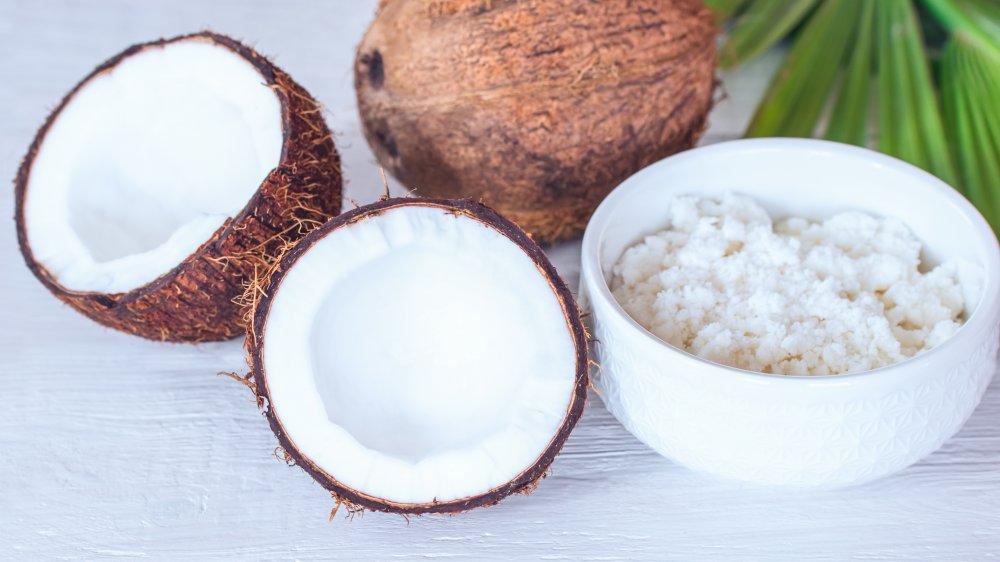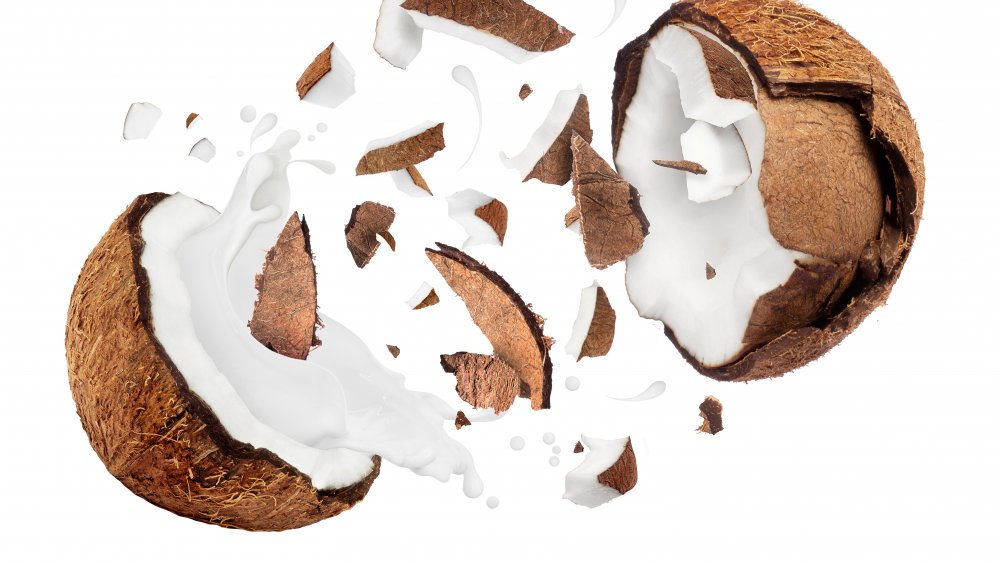The Real Reason You Should Stop Eating Coconut
Health trends come and go. It can be difficult to discern which ones are really beneficial and which ones to avoid. In 2017, Whole Foods predicted the rise of the coconut, touting its versatility. Often called the tree of life, the coconut has many uses that go beyond the pantry. From oil and water to flours, sweeteners, milk, tortillas, and butters, the white meat of the coconut is now being used in a wide array of products. But just because something is having a moment in the marketing world, does that make it truly healthy?
While coconuts are considered a staple in tropical climates, in the Western hemisphere, we still consider them to be somewhat exotic. Perhaps that's why we like them. Coconut meat is generally purchased dried and shredded, with most people preferring to forego the hassle and messiness of cracking one open using a hammer. Coconut has become a popular addition to fruit salads, yogurt, and oatmeal. People use it in breading for meats and fish, as well as in sauces, stews, stir-fries, and even in smoothies and cocktails. But it's nutritional profile may have you reconsider sprinkling a handful into your next dish (via Healthline).
Coconuts are not a super food
Coconuts are, indeed, versatile, but coconuts also pack a lot of calories and fat in a 1-cup serving. Containing 283 calories and 27 grams of fat, coconut meat is high on the list of fattiest fruits, boasting a significant amount of saturated fat. The American Heart Association recommends aiming for only 5 to 6 percent of daily calories consumed to come from saturated fat, which roughly translates to 13 grams based on a 2,000 calorie per day diet. Why do we want to avoid these saturated fats? Over the course of many years of research, scientists have proven that this type of fat can raise your LDL or "bad" cholesterol. The greater number of LDL particles in your body, the greater the risk for heart disease and stroke. These fats can also lead to some serious and unwanted weight gain and no one wants to see that when they step on the scale.
So in the end, despite marketing attempts to make us believe coconut is a super food, its saturated fat content should give you pause the next time you grab a handful of shredded coconut to snack on, or add to your smoothie, or breakfast cereal.

